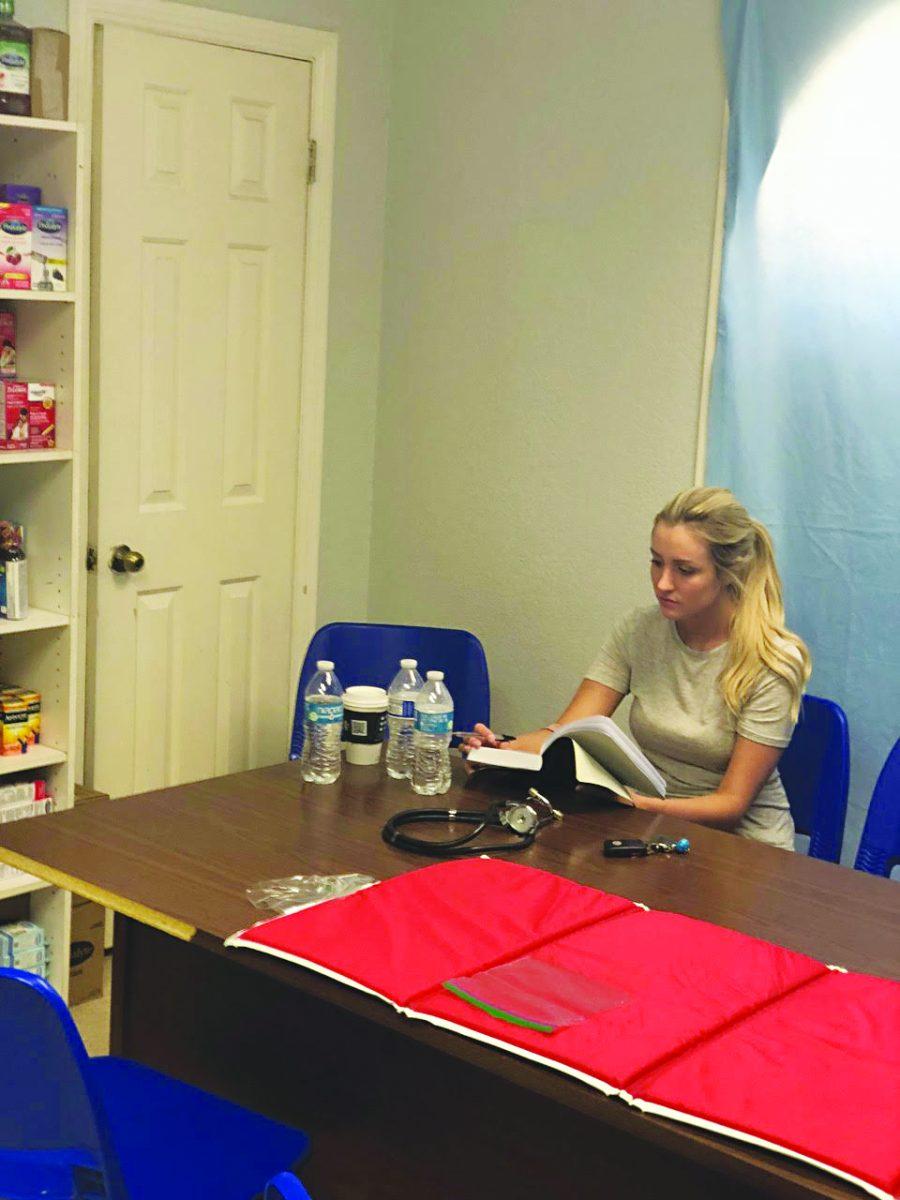Last summer, one UTD alumna packed a bag and the six first-aid kits available at a nearby Walmart and drove more than 500 miles to the largest U.S. Customs and Border Protection detention center in McAllen, known colloquially as “Ursula.”
Ashtyn Tayler graduated from UTD with her post-baccalaureate degree in biomedical sciences last fall. The summer before graduation, she was enrolled in an intensive MCAT course to prepare for the medical school application process when the news of conditions at migrant detention facilities surfaced. Later in June, she spent three weeks assisting families at the border and advocating for their health.
“I remember thinking, ‘What am I doing?’ There are people a few hours’ drive from me who need help,” she said. “Watching the news and seeing what was happening so close to us in Texas — doing nothing was no longer an option.”
When Tayler drove to McAllen, the city’s patrol station was apprehending and detaining more people for suspected illegal immigration than any other station. Human rights groups around the nation commented on the consequences of a “zero tolerance” policy — under which eligibility for asylum is restricted — and resulting family separation practices under the Trump administration. The practice previously occurred under rare circumstances in past administrations before the Trump administration made it a policy in April 2018. On June 20, Trump signed an executive order to halt family separation but continue the “zero-tolerance” policy.
At the border, medical neglect in U.S. facilities has resulted in more than 20 deaths — including three children — since 2010. Overcrowding, lack of sufficient food and water and insufficient medical care are among the threats those held in detention facilities face.
In McAllen, Tayler ended up at a shelter housed in an old office space where she asked volunteers if there were any physicians or doctors available to help. A busload of about 130 people had just been dropped off who clearly needed medical assistance. Tayler, a pre-med student, was the only person available to assist.
“I can’t convey enough how scary of a thing it is to see so many people who are in that condition, where you can smell the sickness on them,” she said. “These aren’t normal hospital conditions. When you get involved in humanitarian work, it’s a very different type of medicine. It requires a lot of improvisation.”













